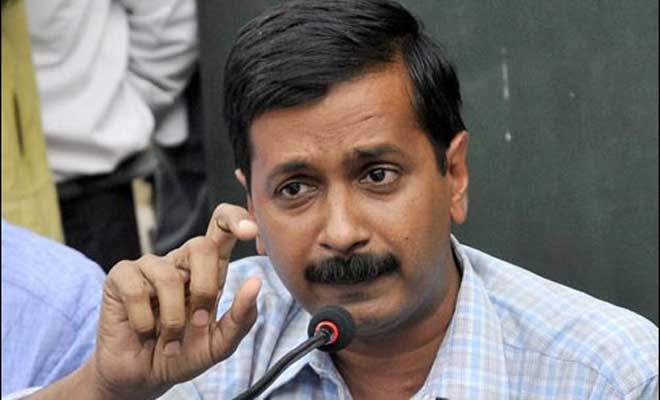New Delhi: The year saw less of rabble- rousing between the AAP government and the Lt Governor’s office as compared to the past but the Arvind Kejriwal dispensation had to grapple with issues like pollution, unfulfilled poll promises and corruption charges.
Since Anil Baijal took charge at the Raj Niwas on December 31 last year, he has given his nod to the Aam Aadmi Party government’s several key decisions like the new minimum wages and education loan scheme.
Baijal’s predecessor Najeeb Jung and the AAP government had been at frequent loggerheads on a range of issues including administrative control over the bureaucracy.
However, the L-G’s office and Kejriwal sparred on some occasions as the latter in October had said he was an “elected chief minister, not terrorist” over the delay by Baijal in approving the government’s decision to regularise around 17,000 guest teachers.
The 2017 also saw the ruling Aam Aadmi Party change its strategy of directly attacking Prime Minister Narendra Modi after multiple poll reverses and instead focused its charge on the BJP as a whole.
Since the AAP government was formed in February 2015, Kejriwal had adopted a strategy to hit out at the prime minister on several fronts. However, after the rout in the assembly elections in Punjab, Goa and MCD polls, the party changed its stance.
There was also a political firestorm in the national capital when Kejriwal had in May sacked the then water minister Kapil Mishra over alleged “poor water management”.
After being ousted from the cabinet, Mishra launched a series of attacks against Kejriwal, alleging that he had seen him taking Rs 2 crore in cash from Health Minister Satyendar Jain.
Later, the AAP rubbished Mishra’s charges. After his removal, Kejriwal reshuffled his Cabinet and inducted two new faces – Kailash Gahlot and Rajender Pal Gautam.
The induction of Gahlot, who comes from rural areas and Gautam, a Dalit face, also appeared to be AAP’s initiatives to rebuild the organisation after it suffered a humiliating defeat in the municipal corporation elections in April.
Although the Delhi government will complete three years in office in February, there are several pre-poll promises the AAP dispensation is yet to fulfil.
Two key promises – Wi-fi and installation of CCTV cameras across the national capital – are yet to be fulfilled. According to the Delhi government, it is in the process of fulfilling all these promises.
In the transport sector, the Kejriwal government was not been able to add a single new bus to the existing fleet of Delhi Transport Corporation (DTC) for which it was attacked by rival BJP and Congress when it had announced odd-even in the wake of rising air pollution in November.
According to the court’s direction, there is a need of 11,000 buses to cater to commuters though there are only around 6,500 buses. The government plans to procure 100 e- buses, aimed to bring down air pollution in the city.
Tackling rising air pollution was also one of major challenges for the AAP dispensation. It is yet to procure sufficient number of mechanical sweeping machines to reduce dust pollution. On several occasions in 2017, the National Green Tribunal slammed the government over the issue of pollution.
The government also aims to provide drinking tap water to every household by 2018. In March, the AAP government inaugurated its ambitious pilot project to provide 24×7 potable water to residents of Navjivan Vihar in south Delhi.
The AAP government has prioritised health and education sectors since its formation.
This year, 8,000 new classrooms were constructed and another 8,000 rooms are to be built next year. Earlier this month, Kejriwal had claimed that the AAP government has succeeded in preventing private schools from arbitrarily increasing fees, thus providing a major relief to parents.
In October, the AAP dispensation introduced higher education and skill development loan guarantee scheme under which students are provided loans by banks with the government as a guarantor.
Under this scheme, students can get education loans of up to Rs 10 lakh from banks while the government would be their guarantor.
In order to promote sports in Delhi, the city administration has also plans to provide financial assistance of up to Rs 3 lakh per annum and specialised training to young sporting talents from the national capital.
Besides education, health sector is also on the top priority of the Delhi government. Mohalla clinics, numbering over 160 at the moment, are expected to go up to 1,000 in 2018. The deadline, which was April earlier, was revised as authorities struggled to acquire land to set up these clinics.
The government, officials said, has also been improving infrastructure in the health sector. In 2017, the AAP government announced two major schemes – free surgery scheme in private hospitals and free-medicine scheme.
In March, the Kejriwal government raised minimum wages by 37 per cent for unskilled, semi-skilled and skilled workers.
For an unskilled worker, the minimum wages is Rs 13,350 per month against the earlier Rs 9,724 per month.
For semi-skilled and skilled persons, minimum wages are Rs 14,698 and Rs 16,182 per month respectively.
PTI

